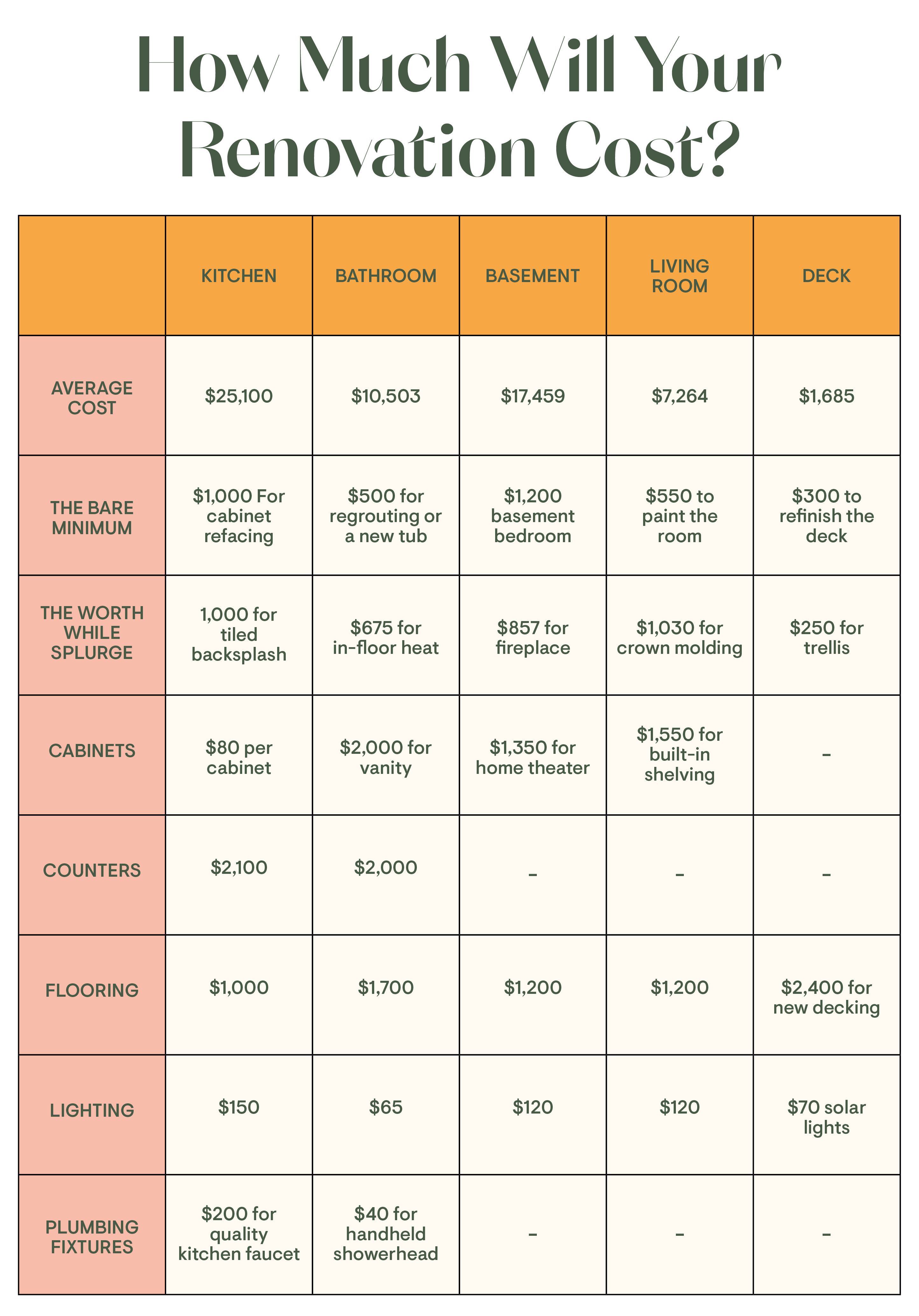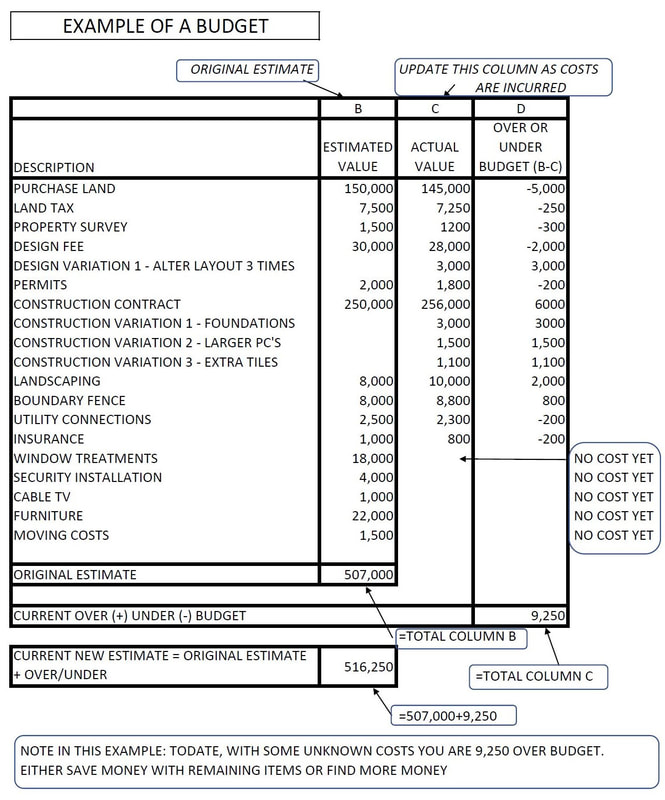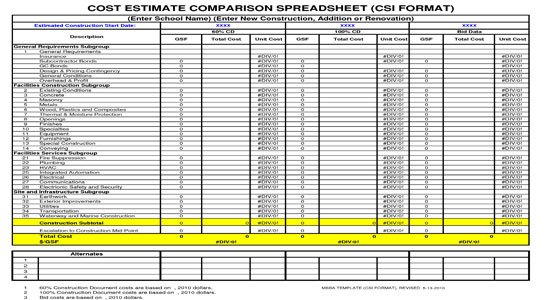How to Estimate Renovation Costs? Estimating renovation costs can be tricky. It would be best if you ha a clear plan and budget.
Also Read
Home renovation projects often seem exciting at first. But if you don’t plan properly, the costs can escalate rapidly. Knowing how to estimate renovation costs is crucial. It helps to avoid unpleasant financial surprises. From materials to labor, every detail matters.
This guide will walk you through the steps. You’ll learn how to assess your needs and how much it might cost. Accurate estimates will keep your renovation on track and within budget. Ready to dive in? Let’s get started on making your renovation project a success.
Setting A Budget
Starting a renovation project? The first step is setting a budget. This helps you avoid overspending. It ensures you can cover all expenses. A clear budget makes the process smoother and less stressful.
Setting a budget requires careful planning. Consider your financial limits. Think about what you really need. Let’s explore how to estimate renovation costs effectively.
Assessing Financial Limits
Before planning a renovation, check your finances. Know how much you can spend. Look at your savings and income. Consider any loans you might need. This helps you avoid financial strain.
Calculate your monthly expenses. Include bills, groceries, and other costs. Subtract this from your income. The remaining amount can go toward your renovation. This simple step keeps your finances healthy.
Prioritizing Renovation Needs
List what you want to renovate. Rank these items by importance. Focus on essential repairs first. Cosmetic changes can wait. This ensures your money goes to the most critical areas.
Think about long-term benefits. Energy-efficient upgrades can save money. Safety repairs prevent future problems. Prioritizing needs helps you stay within budget. It also ensures a successful renovation.

Credit: www.housebeautiful.com
Evaluating The Property
Before starting any renovation, it’s important to evaluate the property. This step is crucial for estimating costs. Careful assessment helps avoid surprises. It ensures you budget accurately. Below are key areas to focus on.
Inspecting Structural Elements
First, check the structural elements. These include the foundation, walls, and roof. Look for cracks, leaks, or any signs of damage. Structural repairs can be costly. Identifying issues early helps plan your budget.
Hire a professional inspector if needed. They can spot hidden problems. They provide a detailed report. This helps you understand potential expenses.
| Structural Element | Common Issues | Estimated Cost |
|---|---|---|
| Foundation | Cracks, water damage | $500 – $10,000 |
| Walls | Mold, cracks | $200 – $5,000 |
| Roof | Leaks, broken shingles | $1,000 – $8,000 |
Assessing Cosmetic Upgrades
Next, evaluate cosmetic upgrades. These include paint, flooring, and fixtures. Cosmetic changes are usually less expensive. They still impact the overall cost.
Make a list of desired upgrades. Prioritize them based on your budget. Consider the following:
- Painting walls
- Replacing carpets
- Updating light fixtures
Get quotes from contractors. Compare prices and services. This helps you find the best deal.
Using the above steps, you can estimate your renovation costs. This ensures a smooth renovation process. Happy renovating!
Researching Material Costs
Estimating renovation costs starts with understanding material expenses. Materials can make up a large part of your budget. Researching material costs helps you plan better and avoid surprises.
Comparing Quality And Prices
Not all materials are created equal. Quality varies, and so do prices. Make a list of needed materials. Compare different brands and their qualities.
- High-quality materials last longer but may cost more.
- Mid-range materials offer a balance between price and durability.
- Low-cost materials save money but might need frequent replacements.
Visit stores or browse online for price comparisons. Check customer reviews to know the quality.
Finding Reliable Suppliers
Getting materials from reliable suppliers is crucial. Reliable suppliers ensure quality and timely delivery. Here are ways to find them:
- Ask for recommendations from friends or family.
- Read online reviews and ratings of suppliers.
- Visit local stores and talk to the staff.
Create a list of potential suppliers. Compare their prices and services. Consider bulk purchasing for discounts.
| Supplier | Material Quality | Price Range |
|---|---|---|
| Supplier A | High | $$$ |
| Supplier B | Medium | $$ |
| Supplier C | Low | $ |
Choose a supplier that fits your budget and quality needs.
Labor Cost Estimation
Estimating labor costs is crucial in any renovation project. Accurate labor cost estimation helps avoid unexpected expenses. It also ensures that the project stays within budget. This section will guide you through the essentials of labor cost estimation.
Hiring Professionals
Hiring the right professionals is vital for quality work. Always seek out licensed and insured contractors. This ensures that the work meets legal standards.
Ask for recommendations from friends and family. Check online reviews and ratings. Make sure to get multiple quotes from different contractors. This helps in comparing prices and services.
Here are some professionals you might need:
- General contractors
- Electricians
- Plumbers
- Carpenters
- Painters
Understanding Labor Rates
Labor rates vary based on location, experience, and project complexity. It’s important to understand these factors to estimate costs accurately.
Here is a simple table to help you understand average labor rates:
| Professional | Average Hourly Rate |
|---|---|
| General Contractor | $50 – $100 |
| Electrician | $40 – $90 |
| Plumber | $45 – $100 |
| Carpenter | $40 – $80 |
| Painter | $20 – $50 |
Remember, these rates are just averages. Always get specific quotes for your project. Don’t forget to include extra costs for overtime or emergency work.
Another important aspect is the project’s timeline. The longer the project takes, the higher the labor cost. Ensure all tasks are scheduled efficiently to save time and money.
Understanding labor rates and hiring the right professionals can save you a lot of stress. It also ensures that your renovation project runs smoothly and stays within budget.
Accounting For Permits
Accounting for permits is a crucial step in estimating renovation costs. Permits ensure that your renovation complies with local building codes and regulations. Neglecting permits can lead to fines, delays, and even demolition of work done. This section will help you understand how to account for permits in your renovation budget.
Identifying Necessary Permits
First, identify the permits you need for your renovation. Different projects require different permits. For example, electrical work, plumbing, and structural changes often need specific permits. Check with your local building department. They can provide a list of required permits based on your project scope.
Estimating Permit Fees
Next, estimate the fees for the necessary permits. Permit fees vary by location and project type. Contact your local building department for fee schedules. Some departments have this information on their websites. Include these fees in your renovation budget to avoid surprises.
Contingency Planning
Contingency planning is crucial when estimating renovation costs. It helps you prepare for the unexpected. A well-thought-out plan can save you from financial stress. Let’s dive into the key aspects of contingency planning.
Allocating Extra Funds
Always set aside extra funds. This buffer can cover surprise expenses. Experts suggest saving 10-20% of your total budget. This helps you stay on track financially. It’s better to have more than enough.
Preparing For Unexpected Costs
Unexpected costs can arise during renovations. Hidden damages or changes in material prices can impact your budget. Prepare for these surprises. Research potential issues in advance. Talk to contractors about common pitfalls. This knowledge helps you plan better.
Using Cost Estimation Tools
Estimating renovation costs can feel overwhelming. Thankfully, cost estimation tools can make this easier. These tools help you get accurate estimates without much hassle. Here are two main types of tools you can use.
Online Calculators
Online calculators are simple yet effective tools. They allow you to get quick estimates for your renovation projects. Most online calculators ask for basic details like:
- Room size
- Type of renovation
- Material quality
Once you input this information, the tool provides an estimated cost. This helps you plan your budget better. Some popular online calculators include:
- HomeAdvisor
- Remodeling Calculator
- Lowe’s Project Calculator
Budgeting Software
Budgeting software offers more advanced features. These tools help you track expenses and manage your budget. Key features often include:
- Expense tracking
- Budget planning
- Cost breakdowns
Using budgeting software can save you time and money. You can easily compare estimated costs to actual expenses. This helps you stay within your budget. Some popular budgeting software options are:
- QuickBooks
- Mint
- YNAB (You Need A Budget)
Both online calculators and budgeting software can help. Choose the tool that best fits your needs. This will make your renovation project smoother and more cost-effective.

Credit: www.pn-projectmanagement.com
Expert Tips
Estimating renovation costs can be challenging. But with some expert tips, the process can be easier. These tips cover essential aspects like negotiating with contractors and timing your renovation. Following these tips can help you save money and avoid surprises.
Negotiating With Contractors
Start by getting multiple quotes. This helps you compare prices and services. Don’t choose the cheapest option right away. Consider the contractor’s reputation and experience. Ask for references and check their past work.
Clear communication is key. Be specific about what you want. Detailed plans prevent misunderstandings. Discuss the payment schedule and terms. A good contractor will be flexible. Ensure everything is in writing.
A contract protects both parties. Negotiating doesn’t mean cutting costs at quality’s expense. Find a balance between cost and quality.
Timing Your Renovation
Timing affects renovation costs. Avoid peak seasons like summer. Contractors are busier then and might charge more. Off-season months can offer better deals. Plan renovations during cooler months. Winter is often a slower period for contractors.
Be mindful of holidays. Contractors may be less available. Starting early in the year can be beneficial. It allows time for unexpected delays. Order materials in advance. Delays in delivery can increase costs. Proper timing ensures smoother and cost-effective renovations.

Credit: constrblog.wordpress.com
Frequently Asked Questions about How to Estimate Renovation Costs
How To Estimate Renovation Costs Accurately?
To estimate renovation costs accurately, list all required materials and labor. Get multiple quotes from contractors. Research average costs for similar projects.
What Factors Affect Renovation Costs?
Several factors affect renovation costs, including project size, materials quality, labor rates, and location. Unexpected issues can also increase costs.
How To Budget For A Home Renovation?
Create a detailed budget by estimating all costs, including materials, labor, permits, and contingencies. Add a 10-20% buffer for unexpected expenses.
Are Renovation Cost Calculators Reliable?
Renovation cost calculators provide rough estimates. For accurate results, use them as a starting point and consult with contractors for precise quotes.
Conclusion of How to Estimate Renovation Costs
Renovation costs can vary. It’s crucial to plan and budget carefully. Always get multiple quotes. Compare prices and services. Research thoroughly. Track expenses to avoid surprises. Balance your wants with your needs. Stay flexible and be prepared for unexpected costs.
With careful planning, you can achieve your renovation goals without overspending. Remember, a well-managed budget leads to a successful renovation.




